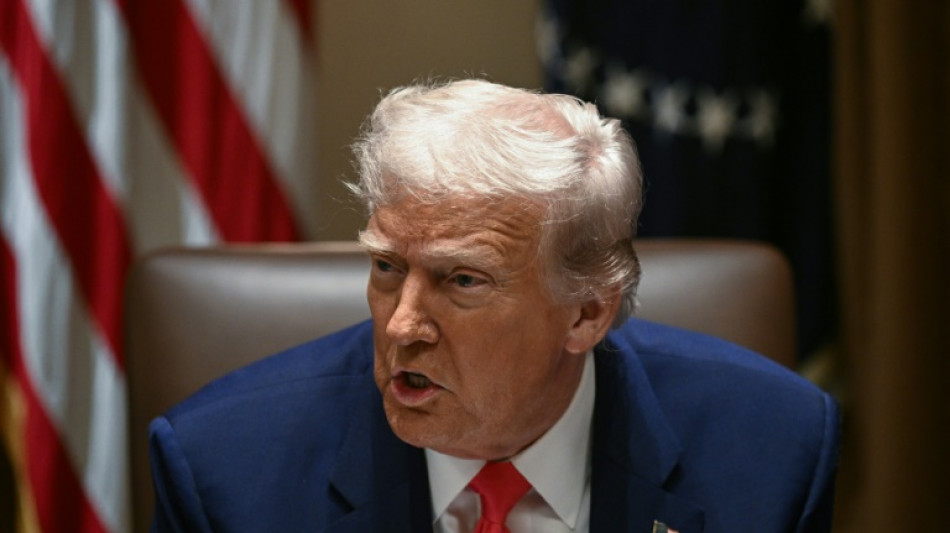
-
 Deadly monsoon rains lash Pakistan, killing dozens
Deadly monsoon rains lash Pakistan, killing dozens
-
Frank urges 'real' Spurs fans to back Tel after racist abuse

-
 Japan's emperor expresses 'deep remorse' 80 years after WWII
Japan's emperor expresses 'deep remorse' 80 years after WWII
-
Chelsea boss Maresca eager to sign new defender as Colwill cover

-
 Liverpool target Isak controls his Newcastle future: Howe
Liverpool target Isak controls his Newcastle future: Howe
-
New-look Liverpool kick off Premier League season after spending spree

-
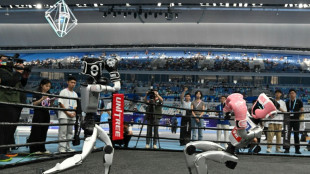 Football and falls as first humanoid robot games launch in China
Football and falls as first humanoid robot games launch in China
-
'Like hell': Indoor heat overwhelms Saudi Arabia's cooks, bakers

-
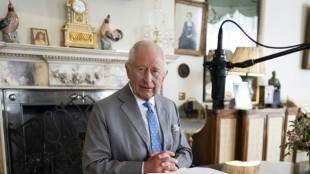 On VJ day, king pays tribute to UK veterans, warns of war's 'true cost'
On VJ day, king pays tribute to UK veterans, warns of war's 'true cost'
-
Stocks mostly higher before US-Russia summit
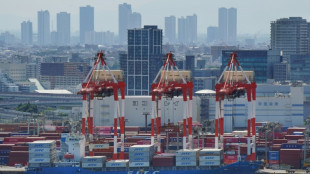
-
 Bayern's Bundesliga crown up for grabs after rocky summer
Bayern's Bundesliga crown up for grabs after rocky summer
-
Arsenal face revamped Man Utd as new-look Liverpool open Premier League season

-
 South Korea president vows to build 'military trust' with North
South Korea president vows to build 'military trust' with North
-
'Never again': Indigenous Bolivians sour on socialism

-
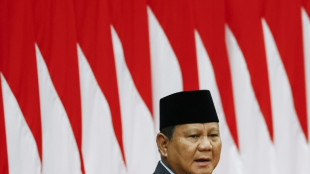 Indonesia's president touts economy, social welfare drive
Indonesia's president touts economy, social welfare drive
-
World plastic pollution treaty talks collapse with no deal

-
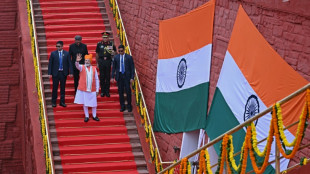 Facing US tariffs, India's Modi vows self-reliance
Facing US tariffs, India's Modi vows self-reliance
-
Trump to meet Putin in high-stakes Alaska summit

-
 Indian rescuers scour debris after 60 killed in flood
Indian rescuers scour debris after 60 killed in flood
-
Ivory Coast village reburies relatives as rising sea engulfs cemetery

-
 Stressed UK teens seek influencers' help for exams success
Stressed UK teens seek influencers' help for exams success
-
National Guard deploys 800 personnel for DC mission, says Pentagon
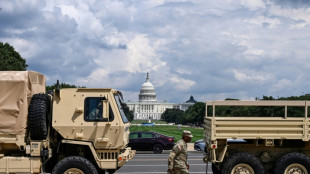
-
 Japan emperor expresses 'deep remorse' 80 years after WWII
Japan emperor expresses 'deep remorse' 80 years after WWII
-
With waters at 32C, Mediterranean tropicalisation shifts into high gear

-
 Historic Swedish church being moved as giant mine casts growing shadow
Historic Swedish church being moved as giant mine casts growing shadow
-
Malawi's restless youth challenged to vote in September polls

-
 Indonesian roof tilers flex muscles to keep local industry alive
Indonesian roof tilers flex muscles to keep local industry alive
-
World's first humanoid robot games begin in China
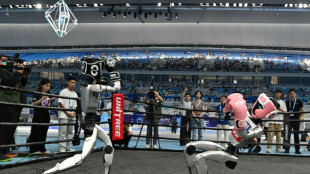
-
 Scott Barrett returns to lead All Blacks against Argentina
Scott Barrett returns to lead All Blacks against Argentina
-
Five things to know about Nigeria's oil sector
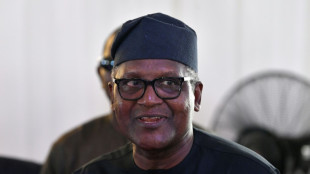
-
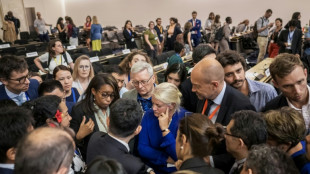 New compromise but still no deal at plastic pollution talks
New compromise but still no deal at plastic pollution talks
-
France's Cernousek seizes lead at LPGA Portland Classic

-
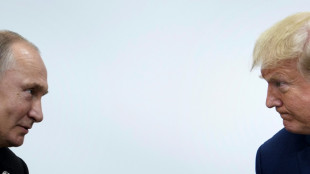 Putin-Trump summit: What each side wants
Putin-Trump summit: What each side wants
-
Desperate Myanmar villagers scavenge for food as hunger bites

-
 Qualifier Atmane stuns Rune to set up Sinner semi-final in Cincinnati
Qualifier Atmane stuns Rune to set up Sinner semi-final in Cincinnati
-
Hong Kong tycoon Jimmy Lai's security trial delayed over health concerns
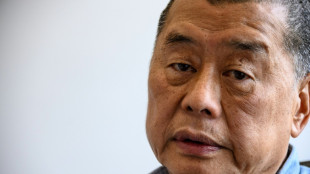
-
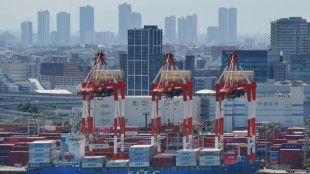 Asia stocks mixed before US-Russia summit
Asia stocks mixed before US-Russia summit
-
Putin hails North Korean troops as 'heroic' in letter to Kim
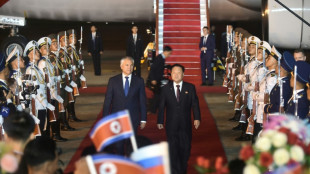
-
 Fleeing the heat, tourists explore Rome at night, underground
Fleeing the heat, tourists explore Rome at night, underground
-
Online cockfighting thrives in Philippines despite ban and murders

-
 Keeping cool with colours -- Vienna museum paints asphalt to fight heat
Keeping cool with colours -- Vienna museum paints asphalt to fight heat
-
Raising the bar: Nepal's emerging cocktail culture

-
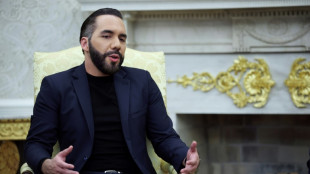 El Salvador plans 600 mass trials for suspected gang members
El Salvador plans 600 mass trials for suspected gang members
-
Trump's tariffs drown Brazil's fish industry

-
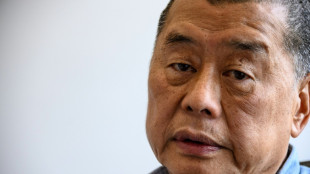 Hong Kong tycoon Jimmy Lai's collusion trial resumes after delay
Hong Kong tycoon Jimmy Lai's collusion trial resumes after delay
-
Britain's Princess Anne turns 75 with typically minimal fuss
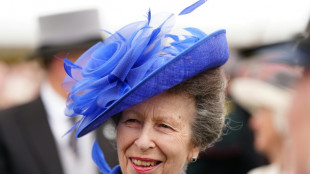
-
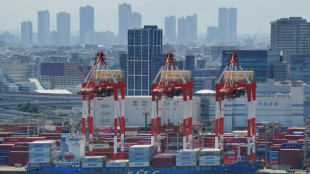 Japan posts modest growth despite US tariffs
Japan posts modest growth despite US tariffs
-
Rugby Championship kicks off amid uncertain future

-
 Israeli far-right minister backs contentious West Bank settlement plan
Israeli far-right minister backs contentious West Bank settlement plan
-
Hot putter carries MacIntyre to three-shot lead at BMW Championship


Despite Trump pause, overall US tariff rate at highest in a century
US President Donald Trump's delay of steeper tariffs may have won brief respite on Wall Street, but analysts say his actions -- which hit China especially hard -- already bring the average US effective tariff rate to its highest in over a century.
Besides imposing sweeping new 10 percent tariffs on goods from most US trading partners, Trump has also unleashed steep duties on imports of steel, aluminum and autos since his White House return.
But on Wednesday, he backed off even higher rates on dozens of economies, including the European Union and Asian manufacturing hub Vietnam, following a sharp sell-off in US government bond markets -- though he doubled down on action against China.
Many goods from the world's second biggest economy now face levies of at least 145 percent -- the total additional figure Trump has imposed this year.
"The newly imposed tariffs now affect $2.4 trillion of US imports, or nearly 75 percent," said Erica York of the Tax Foundation.
"Compared to Trump's first term, this is a massive escalation, as his first tariffs affected about $380 billion of US imports or 15 percent," she told AFP.
- 'Highest since 1903' -
Researchers from the Budget Lab at Yale University estimate that "consumers face an overall average effective tariff rate of 27 percent, the highest since 1903."
"This is only slightly different from where the effective rate was before the late-April 9 announcement," they added.
Even after accounting for consumption shifts, the average tariff rate will be 18.5 percent, the Budget Lab anticipates. This would be the highest since 1933.
Thibault Denamiel, a fellow at the Center for Strategic and International Studies (CSIS), estimates that the US tariff rate was 2.4 percent in December 2024 -- a figure which now stands north of 20 percent.
"That's mostly due to the fact that we still have a 125 percent tariff rate on China," he said, referring to the latest duty Trump imposed on Chinese goods.
The 125 percent tariff, which took effect Thursday, coupled with an earlier 20 percent over China's alleged role in the fentanyl supply chain, putting Trump's new tariffs targeting China this year to 145 percent.
Even a much lower tariff would significantly impact the world's biggest economy, Denamiel said, noting that China is the United States' third most important trading partner.
Analysts have also pointed out that Trump's actions marked the biggest tariff increase since the Smoot-Hawley Act of 1930, which deepened the Great Depression.
- Shrinking imports -
Trump has claimed the United States was "taking in almost $2 billion a day" from tariffs.
He has referred to them as a means to raise government revenue, boost the country's industrial sectors and to pressure other governments on US priorities.
But experts warn that prohibitively high duties on China will likely cause US imports from the country to contract.
With Chinese tariffs reaching punitive levels, even conservative estimates suggest that China's share of imports "should shrink dramatically," said JPMorgan chief US economist Michael Feroli in a recent note.
If this were to happen, York of the Tax Foundation added that imports from China would end up generating "very little tariff revenue."
"Overall, we estimate the tariffs and announced retaliation will shrink US GDP by 1.0 percent," she said.
With Trump's latest actions, Feroli expects "the drag from trade policy is likely to be somewhat less than before, and thus the prospect of a recession is a closer call."
"However, we still think a contraction in real activity later this year is more likely than not," he added.
I.Yassin--SF-PST
